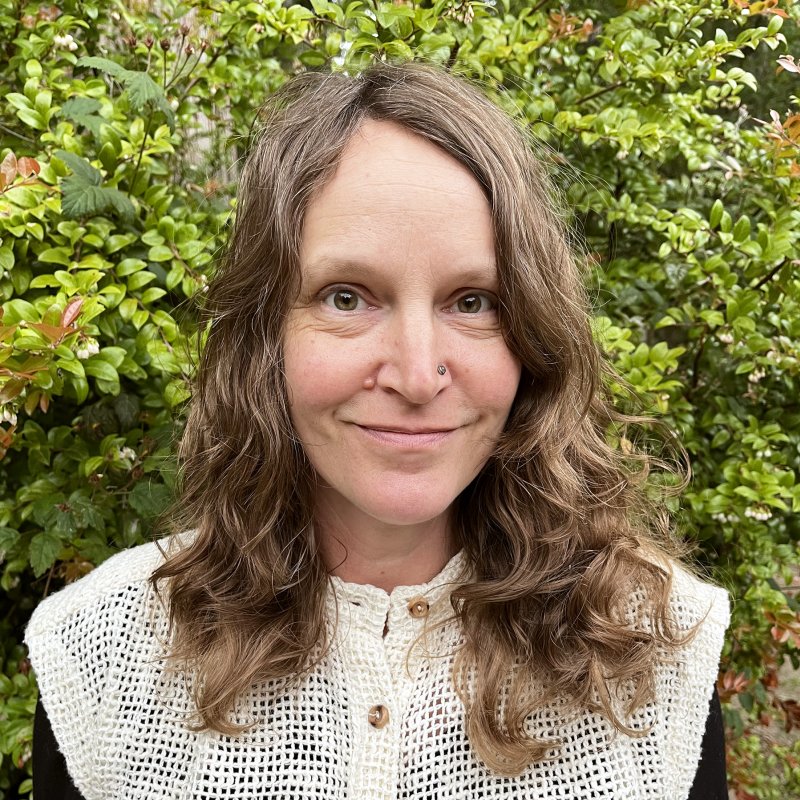Jeanne Marie Dodds
About the researcher
Jeanne Dodds is an artist, biodiversity conservationist, researcher, and educator whose creative practice investigates place identity, natural pigments, and systems relationships. She lives on an island in the Pacific Northwest corner of the US, the homelands of Coast Salish Peoples, where she explores the complex biodiversity of the rainforest and nearshore. Her current PhD research at Falmouth University Institute of Photography investigates natural pigments, more-than-human kinship, and place identity as experienced during climate change. She earned her Master of Environmental Studies researching visual art’s impact preventing wildlife trafficking, conducting research in the US, Indonesia, and Costa Rica. For her BFA, she photographed dams on the Columbia and Snake Rivers in Washington, Oregon, and Idaho and created avian and botanical imagery for her certificate in Scientific Illustration. She works for a conservation non-profit on national campaigns intersecting art, species conservation, and culture change. Jeanne owns and manages an independent art business, Artemis. Through Artemis, she’s created and implemented curriculum for more than sixty schools, museums, and non-profit organizations. She’s presented conference papers and talks in locations including New Zealand, Colombia, and Rwanda, and is honoured to have been awarded multiple international Artist Residencies, including a current Honors Residency researching natural pigment and colonialism through Arquetopia. At the core of her creative practice is an ever-deepening connection to the sacred relationships between humans and the more-than-human world.
Research interests
Natural mineral and plant pigments, ecological photography, reciprocity and kinship with the more-than-human world, biodiversity conservation, ecological crises and resilience, ecological restoration, native species, climate change, illegal wildlife trade, placemaking, place identity, palaeolithic art, colonialism, and Traditional Knowlege.

PhD abstract
Thesis title
Place Identity Through Ecological Kinship: Seeing Ourselves in the More-Than-Human
Abstract
My current research asks: How do more-than-human visual representations create kinship and place identity, increasing awareness of climate change impacts while supporting human capacity to bear witness and respond to change?
Through creative practice, I am investigating the potential for more-than-human kinship and identification with place to benefit biodiversity conservation under climate change. My creative process and practice is undertaken to define kinship, through an examination of responsible and responsive human interrelationships with locations, natural phenomena, and species. I am positioning this understanding of kinship in relationship to place, by developing relationships with local natural pigments and working with these pigments to explore specific place identities. This is done through an understanding that humans are evolutionary related to and interdependent with beings and natural phenomena.
I am interpreting my natural pigment practice through multi-media illustration and photography. Using these processes, I interrogate the idea that increased connection to local ecosystems and species is created by imagery. In an increasingly visual world where climate change messaging is urgent, more-than-human representation is consequential. Perceptual changes from audience imagery encounters are under-researched, and the capacity for art to enrich place identity is a seldom applied conservation strategy. Visual representations may influence behaviors connected to climate change; effectively deploying this potential requires transdisciplinary, applied practice. My research seeks to better understand these possibilities through practice, exhibition, and interviews, to contribute new knowledge about placemaking and kinship development through creative processes.
Qualifications
| Year | Qualification | Awarding body |
|---|---|---|
| 2018 | Master of Environmental Studies | The Evergreen State College |
| 2004 | Certificate in Scientific Illustration | University of Washington |
| 1998 | Bachelor of Fine Art, Photography | Boise State University |
Honours & awards
| Year | Description |
|---|---|
| 2024 | Arquetopia Honors Alumni Artist Residency, March 2024-September 2025 |
| 2023 | Arquetopia, Natural Pigments Artist Residency, Oaxaca, Mexico, October-November 2023 |
| 2023 | SWALE House and Urban Soils Institute, Artist Residency, Governors Island, New York City, New York, USA, June 2023 |
| 2023 | Creature Conserve reImagining Conservation exhibition, SWALE House, Governors Island, NY |
| 2022 | Creature Conserve reExamining Conservation exhibition, Brown University, Rhode Island |
Areas of expertise
Fine Art, Ecological Photography, Illegal Wildlife Trade, Biodiversity Conservation, Habitat Restoration, Scientific Illustration, Environmental Justice
Contributions
Lead Author, Justly Biodiverse: Nature’s Lifeline for the Health of All Communities, environmental justice and biodiversity report, 2021
Curator, Submergence: Going Below the Surface with Orca and Salmon, Jack Straw Gallery, Seattle, WA, 2021
Master of Environmental Studies Theses, Seeing Animals as Kin: The Role of Art in Preventing Wildlife Trafficking, 2018
Committee membership
Endangered Species Day Advisory Board, Endangered Species Coalition, 2016-2023
Grants & awards
| Year | Description | Awarding body |
|---|---|---|
| 2018 | Student Activity Grant | The Evergreen State College |
| 2017 | Graduate Research Fellowship | The Evergreen State College |
Professional engagements
Art for Biodiversity Conservation, Invited Talk, CHANCE Greece Field Course, Penn State University, Athens, Greece, June 2024
Native Arizona Pollinators and Plants, Presentation, Arivaca Pollinator Pathway Project, Arivaca, Arizona, USA, April 2024
Creative Collaboration and Biodiversity Conservation, Roundtable Discussion, International Congress of Conservation Biology, Kigali, Rwanda, July 2023
Native Plants and Pollinators, Presentation, National Native Seed Conference, Alexandria, Virginia, USA, March 2023
EveryBody’s Nocturne, Nearshore Climate Change Workshop, Critical Edge Alliance, Paris, France, June 2022
Wildlife Trade, Colonialism and Visual Art, Conference Paper, Australasian Association for Animal Studies, Christchurch New Zealand, July 2019
Wildlife Trade and Visual Art, Presentation, International Congress of Conservation Biology, Kuala Lumpur, Malaysia, July 2019
Missing Species Reports Curriculum, Presentation, North American Association for Environmental Education, Spokane, Washington, USA, September, 2018
Wildlife Trade in the Pacific Northwest, Presentation, Society for Northwestern Vertebrate Biology, Grand Mound, Washington, USA, March 2018
The Role of Art in Preventing Illegal Wildlife Trafficking, Poster Presentation, International Conference of Conservation Biology, Cartagena, Colombia, July 2019